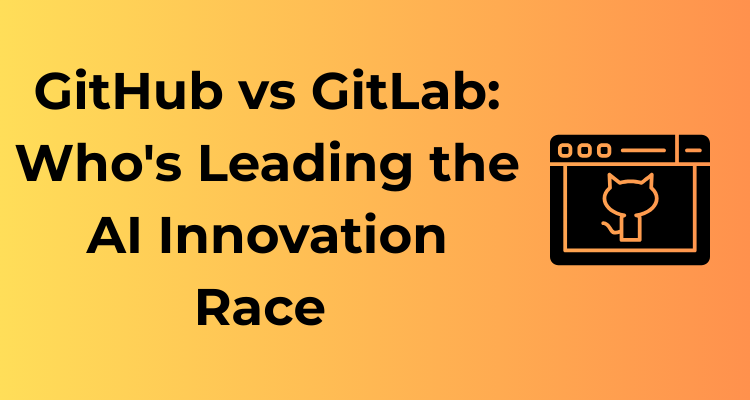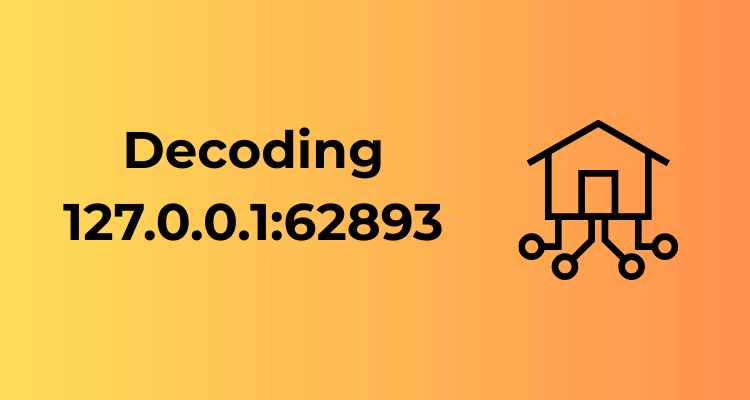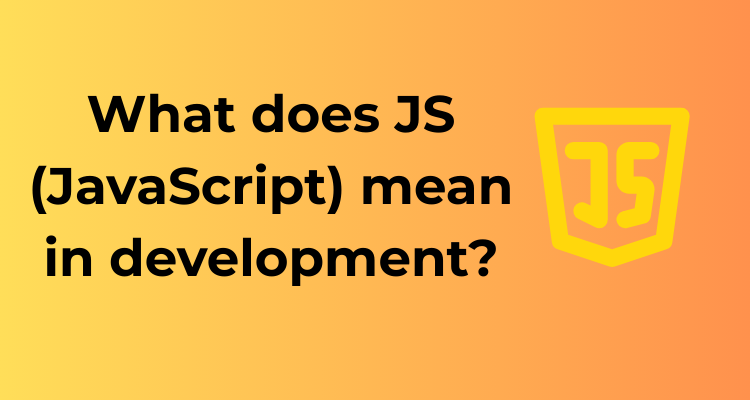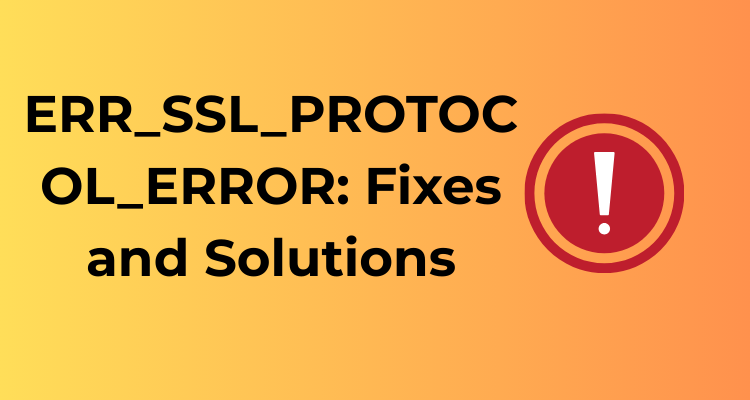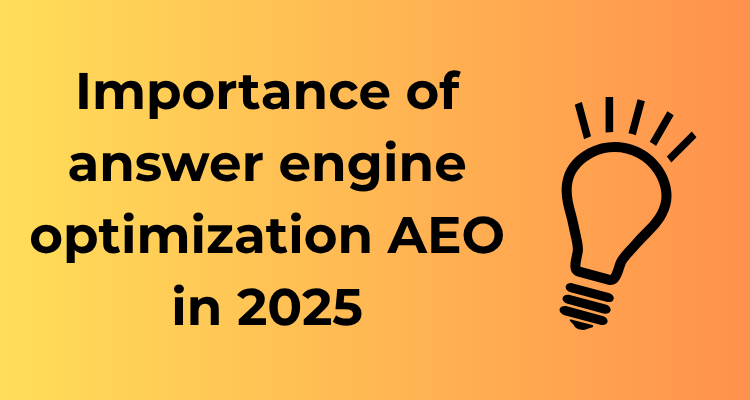If you’re here, you’re already curious about how these two heavyweights, GitHub and GitLab, have left their mark on the world of artificial intelligence (AI). Let’s rewind a bit and get some context. Trust me—understanding the past makes watching today’s innovations even more thrilling!
The Early Days of GitHub and GitLab
When GitHub launched in 2008, it quickly locked itself as the “go-to” platform for developers hosting code repositories. On the other hand, GitLab, founded in 2011, came into the picture as an open-source alternative, appealing to developers who valued self-hosting and full control over their projects. Both platforms prioritized collaboration and streamlined workflows, but there wasn’t a big buzz about AI just yet!
Fast-forward to the early 2010s, and both had already started dabbling indirectly in AI, though it wasn’t mainstream on either platform. Developers began creating libraries, APIs, and tools for machine learning—not because GitHub or GitLab pushed them, but because they were the right platforms for sharing cutting-edge work. This foundation silently set the stage for both companies to embrace the AI revolution that was brewing in the tech world.
The AI Boom and Early Adoption
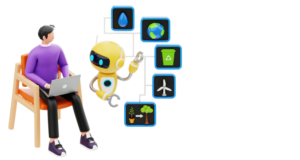
Times changed quickly. By the mid-2010s, the explosion of machine learning frameworks like TensorFlow and PyTorch had developers racing to experiment with AI. Where did they share their learnings? GitHub. By 2017, GitHub’s repository system was already the favorite place to find open-source AI/ML tools, with AI-related repositories dominating trending lists.
Meanwhile, GitLab, though smaller in community size, carved its niche with a focus on DevOps, effectively positioning itself for AI integration in development pipelines. They didn’t just offer a place for collaborative coding—they were thinking about automating large swathes of developers’ time-consuming tasks. By encouraging CI/CD adoption paired with AI-based tools, GitLab attracted teams that wanted AI baked right into their workflows.
Pioneering Built-In AI Features
Things heated up around 2020 when GitHub launched GitHub Copilot, an AI-powered tool that assists developers by auto-completing code snippets at lightning speed. It was the first instance of directly promoting AI as a day-to-day developer assistant within a repository platform, and developers couldn’t stop talking about it. By leveraging OpenAI’s GPT model, GitHub elevated the coding experience into something almost magical.
GitLab didn’t sit quietly either. They began incorporating AI-driven features into broader DevOps workflows, such as helping to auto-generate unit tests or creating recommendations for merge requests. Focusing on automating integration and deployment workflows, they gradually built their reputation as a holistic solution for enterprise teams tackling AI-adjacent challenges.
Larger Impact on the AI Ecosystem
- GitHub: By serving as a home for high-profile open-source AI projects, GitHub became a cornerstone of innovation. Think projects like Hugging Face and Stable Diffusion—all roads led to GitHub for developers hungry to learn and contribute.
- GitLab: Focused on enhancing team collaboration and embedding AI solutions into DevOps pipelines, paving the way for AI-enabled business automation, albeit with a smaller spotlight than GitHub.
At this point, it’s safe to say both platforms became enablers of the AI community in unique ways. Whether you needed a versatile hub for innovation (GitHub) or a high-functioning DevOps ecosystem (GitLab), the seeds were planted for much of the AI momentum we see today.
Key Features that Define AI Advancements
The world of artificial intelligence seems to evolve at the blink of an eye, and 2025 is no different. When it comes to GitHub and GitLab, their focus on cutting-edge features is where the battle for AI leadership becomes especially exciting. Let’s break down the defining AI advancements and how these platforms are revolutionizing the developer experience.
1. AI-Driven Code Assistance
Remember the days when coding was a completely manual process? Those days are behind us. By 2025, AI-powered coding assistants are no longer just a luxury; they’re practically a must-have. GitHub’s Copilot leads the way with smarter, context-aware suggestions and deeper understanding of complex codebases. GitLab, not one to fall behind, has introduced its Code Suggest tool with enhanced machine learning capabilities, ensuring it remains a worthy contender.
Developers on both platforms now benefit from suggestions that go beyond syntax. These AI tools predict whole blocks of functional code, reducing the time spent debugging or reinventing the wheel. It’s like having a coding buddy who *knows exactly* what you’re trying to build.
2. Improved Automated Testing & Error Detection
Error-free code may sound impossible, but AI technology in 2025 brings us closer than ever. Both GitHub and GitLab have introduced AI features to supercharge their CI/CD pipelines. GitHub boasts AI-enhanced automated testing tools that can not only detect errors early but also suggest fixes — a true time-saver for developers.
On the other hand, GitLab’s integration of AI in error detection is centered around context. It calculates the probability of failure, identifies high-priority errors, and even offers insights on how to streamline the code for better performance. These features are enormous productivity boosters, especially for teams juggling complex, multi-repository projects.
3. Personalized AI Insights and Recommendations
Data-driven decision-making has a friend in AI. GitHub has rolled out personalized recommendations for repositories, frameworks, and libraries based on your previous coding habits and projects. Think of it as Netflix, but for coders! This saves invaluable time that would otherwise be spent searching for the “right” tools or resources.
Meanwhile, GitLab has doubled down on its DevOps focus, offering AI-powered analytics and insights for project efficiency. It shows users how they can optimize workflows, reduce bottlenecks, and speed up delivery timelines — applying data science to boost productivity like never before.
4. Enhanced AI-Powered Dev Environments
Setting up an error-prone dev environment is another problem AI is helping to remove. GitHub, for instance, launched cloud-based development environments with built-in AI suggestions that immediately customize themselves based on the project needs. GitLab similarly integrated its tools with environments that adapt depending on team size, project scale, and individual user preferences.
From AI-preloaded templates to predictive workload balancing, developers can now jump into coding faster, spending less time configuring and more time creating.
Community Contributions: A Comparative Glimpse of Open Collaboration
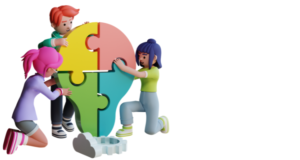
When we talk about GitHub and GitLab, we can’t ignore one of their most powerful assets: the communities that drive innovation through open collaboration. Whether you’re a hobbyist developer or part of a massive tech team, engaging with these communities elevates your experience. But how do these two platforms stack up when it comes to fostering contributions and collaboration in 2025?
GitHub: A Collaborative Powerhouse
GitHub has long been viewed as the holy grail for open-source projects. It’s no surprise: with over 100 million users (as of 2023) and countless public repositories, it’s a treasure trove for collaborative coding. In 2025, GitHub continues to be a stellar platform for developers to share, learn, and contribute. Features like CodeSpaces have made it easier for contributors to dive into projects without worrying about local setup, streamlining participation for newcomers.
Additionally, GitHub’s Actions CI/CD framework isn’t just useful for automating workflows—it’s also been a game-changer for collaborative AI and ML initiatives. Teams can now set up workflows to evaluate AI models collaboratively, allowing quicker iterations and shared learning. GitHub’s AI-powered assistant, Copilot, further incentivizes contributions by helping users write and debug code faster. Who doesn’t appreciate a little boost when tackling tough code challenges?
But here’s the cherry on top: GitHub hosts some of the largest hackathons and open-source events, fostering a global sense of collaboration. Developers can mentor, learn, and network, all while advancing the open-source movement.
GitLab: A Community That Thrives on Iteration
GitLab takes a slightly different stance, emphasizing integration and inclusivity. With its open-core approach, GitLab invites community members to actively shape its platform. Did you know that a significant chunk of GitLab’s features comes from community contributions? In 2025, this ethos hasn’t changed. In fact, GitLab has doubled down on creating a seamless process for contributors—with clearer documentation, active collaboration channels, and transparency around feature development.
Where GitLab really shines is in its encouragement of iteration. Open-source AI projects in particular benefit greatly here. Groups and subgroup hierarchies allow teams to compartmentalize their efforts, which is invaluable for AI frameworks requiring collaborative model training or data processing pipelines. GitLab’s Merge Request Analytics is another boon, helping contributors track the impact of their work and fostering a data-driven approach to collaboration.
Moreover, the GitLab community is hands-down one of the most helpful out there. Forums, issue trackers, and even direct engagement with GitLab employees ensure that contributors rarely feel left out. It’s no wonder AI researchers and enthusiasts are finding GitLab to be a conducive space for their projects.
Open Collaboration: A Tie That Binds
- Both GitHub and GitLab are hubs for open-source development, but their approaches vary significantly.
- GitHub attracts with its massive user base and AI-powered tools like Copilot.
- GitLab leverages its unique open-core model to engage contributors deeply, especially in building innovative features.
Ultimately, it’s not a matter of which platform is “better” for community contributions—it’s about what fits your needs. Are you looking for sheer numbers and instant access to a colossal ecosystem? GitHub’s your answer. Want a close-knit community with a focus on iteration and transparency? GitLab’s calling your name.
AI Integration in DevOps: Comparing Workflows and User-Centric Tools
AI in DevOps is no longer just a “nice-to-have”—it’s the engine revving behind development pipelines in 2025. Both GitHub and GitLab are fiercely competing to create the most seamless AI-powered DevOps workflows. So, which platform is hitting the nail on the head for developers looking to optimize efficiency without sacrificing creativity? Let’s dive into how AI is becoming your new best friend in the DevOps universe.
Streamlining DevOps Pipelines
One of the key goals for integrating AI into DevOps is to take the grunt work off developers’ hands and let these tools act as your co-pilot. GitHub has doubled down on automation through GitHub Actions, now enhanced with AI-driven suggestions tailored to your project’s needs. Whether you’re setting up CI/CD pipelines or automating deployment, GitHub’s AI doesn’t just follow instructions—it learns from your actions to anticipate what you’ll need next.
GitLab, on the other hand, flexes its AI muscles with Auto DevOps. Built with the philosophy of “from code to cloud,” this all-in-one feature handles everything from testing to deployment, even offering feedback via intelligent error predictions. What’s extra impressive? GitLab’s ability to visualize pipeline statuses with AI-enhanced recommendations for improving code and overall team efficiency. It feels like having your in-house DevOps mentor right at your fingertips!
User-Friendly AI Tools for Developers
While both platforms have robust AI integrations, the end-user experience varies. GitHub leverages Copilot, an AI pair programmer trained on billions of lines of code. Need to refactor those clunky lines into something cleaner? Copilot not only assists but learns your coding style as you go. It’s collaborative, intuitive, and feels less like ‘auto-complete’ and more like compelling conversation with a fellow coder.
GitLab’s AI tool suite focuses on providing contextual insights. Think of it like code coaches rather than just writing assistants. For instance, GitLab’s focus on Explainability Features stands out by offering clear justifications for recommendations. Why did the AI suggest X instead of Y? GitLab tells you, ensuring you’re always in control and never in a “black-box” scenario.
Tracing the Human Element: Workflow Is King
While their AI-powered tools are smart, both platforms understand that developers, not machines, define workflow needs. GitHub leans heavily into integrations; its compatibility with third-party tools is off the charts, allowing custom AI workflows via external inputs. This makes it a winner for larger, more customizable DevOps pipelines.
GitLab takes a consolidated approach: its single application model centralizes AI and DevOps, ideal for teams who want everything in one tightly knit environment. No fussing over plugin configurations or syncing between disparate systems—it’s baked into their philosophy of simplicity meets intelligence.
So, Which Suits Your Workflow Best?
- Go GitHub if:
- You thrive on customizability and third-party integrations.
- Copilot-style assistance sounds like a dreamy partner for long coding sessions.
- Go GitLab if:
- You value an all-in-one ecosystem with fewer moving parts.
- Clear AI-driven suggestions and explanations help you sleep better at night.
Transparency and Security in Code Repositories: Keeping AI Ethical
Let’s dive into something crucial yet often overlooked—transparency and security in code repositories. As AI continues to evolve in 2025, these two aspects have become the backbone of ethical coding practices, ensuring developers and organizations alike can innovate responsibly. But what are GitHub and GitLab doing to uphold these ideals? And why does it matter so much? Let me walk you through it.
Why Transparency and Security Matter More Than Ever
With the rapid growth of AI, codebases have become increasingly complex and collaborative. That means more hands in the metaphorical cookie jar, and as the saying goes, with great power comes great responsibility. Transparency ensures that actions within your repository—be it commits, pull requests, or branching—are visible to the team, helping build trust and accountability. And let’s not forget security, which safeguards sensitive data and prevents malicious actors from wreaking havoc.
For AI developers, these principles are doubly important. The consequences of flawed or unethical AI can ripple into real-world harm, from biased algorithms to major data breaches. GitHub and GitLab have made it their mission to give developers tools that make ethical coding easier and safer.
GitLab’s Ethical Coding Armor
- Built-in Code Security: GitLab Security Dashboard provides detailed insights into vulnerabilities right within your CI/CD pipeline. It’s like a one-stop shop for spotting potential hiccups before they become disastrous.
- Audit Events: GitLab excels in tracking user actions, whether it’s a commit push or project deletion. This transparency helps everyone in a collaborative environment understand what’s happening behind the scenes.
- Compliance Management: For industries adhering to regulations like GDPR, GitLab offers compliance frameworks that keep your repository in legal alignment with minimal hassle.
It’s clear that GitLab views security and transparency not as add-ons but as essentials baked into its platform. Their features integrate seamlessly into development workflows, making ethical practices almost second nature.
GitHub’s Take on Keeping It Honest
- Dependabot and Code Scanning: GitHub continues to set the bar high with AI-powered tools like Dependabot and code scanning, proactively identifying security issues and outdated dependencies. This reduces the risk of exploitable flaws sneaking into your codebase.
- Commit and Contributor Insight: By offering deep visibility into individual contributions and changes, GitHub fosters a culture of transparency. Who did what and when? It’s all right there for you to see.
- Security Advisory Ecosystem: GitHub’s Security Advisory Database is a treasure trove of information, guiding developers to fix vulnerabilities while keeping the broader community informed about potential risks.
GitHub’s investment in ethical AI extends beyond its tools. By creating accessible resources and fostering open dialogue around privacy and security, they’ve positioned themselves as industry leaders in ethical development practices.
A Friendlier Path to Ethical AI
Regardless of whether you prefer GitHub’s polished ecosystem or GitLab’s exhaustive security tools, the takeaway is clear—ethical AI starts at the repository level. Both platforms are working hard to give developers the frameworks and insights they need to build responsibly. When choosing between the two, think about the balance that makes sense for your team’s culture and goals. After all, a secure and transparent workflow isn’t just about protecting your project; it’s about safeguarding the integrity of AI itself.
Corporate Support and Ecosystem: How Microsoft and GitLab Inc. Play a Role
When it comes to innovation and success in the competitive world of AI, we can’t ignore the influence of the heavyweight players behind GitHub and GitLab. Their parent companies—Microsoft and GitLab Inc., respectively—are not just observers in this race. They are active participants, injecting their unique expertise, resources, and vision into shaping the ecosystems of their platforms. Let’s unpack how each is driving its chosen platform forward in 2025.
Microsoft’s Backing for GitHub: A Powerhouse Combination
When Microsoft acquired GitHub in 2018, it raised a few eyebrows—but fast forward to 2025, and it’s easy to see why this partnership made sense. Microsoft’s immense resources and decades of experience in developer tooling and enterprise solutions have amplified GitHub’s AI evolution. Here’s how:
- GitHub Copilot: One of the poster children for GitHub’s AI efforts, Copilot leverages OpenAI’s GPT models (thanks to Microsoft’s investment there too!) to help developers write smarter and faster code. With Microsoft’s backing, Copilot keeps getting stronger.
- Access to Azure: Microsoft’s cloud platform, Azure, seamlessly integrates with GitHub, offering a robust environment for developers building and managing scalable AI solutions.
- Enterprise AI Support: Microsoft has brought its enterprise focus to GitHub, ensuring large organizations can adopt AI-driven GitHub solutions with confidence.
Microsoft’s influence means GitHub isn’t just a tool—it’s part of a broad ecosystem designed to help developers take AI from idea to deployment, whether they’re hobbyists or part of Fortune 500 companies.
GitLab Inc.: The Independent Innovator
On the other hand, GitLab Inc. has doubled down on its mission to be an independent, complete DevOps platform. GitLab’s approach emphasizes flexibility, transparency, and user empowerment. How does this stack up in the AI race?
- Single Application Vision: Rather than fragmenting tools, GitLab provides an all-in-one platform for DevOps. This includes AI features baked into every step of the software development lifecycle, from planning to monitoring.
- AI-Powered Insights: GitLab’s AI tools focus on providing actionable insights, such as identifying risks or suggesting improvements in security, performance, and compliance directly within the development process.
- Commitment to Open Source: Unlike GitHub’s Microsoft-backed resources, GitLab remains deeply committed to open-source projects and community-driven innovation, which appeals to independent developers and organizations alike.
GitLab Inc. isn’t relying on the deep pockets of a parent company; instead, it’s building its reputation on quality, user-focused tools and a commitment to “freedom over control.”
Which Ecosystem Wins the Day?
It’s hard to say which approach is ‘better’; it boils down to what developers and organizations value most. Microsoft’s GitHub comes with the advantage of massive financial and technological support, while GitLab shines as a nimble, user-focused alternative driving innovation without corporate constraints.
Ultimately, the involvement of Microsoft and GitLab Inc. isn’t just about backing these platforms. It’s about propelling the entire developer ecosystem forward, ensuring choice, flexibility, and innovation in how we build, deploy, and leverage AI in 2024. Whether you’re team GitHub or team GitLab, there’s no denying the importance of their corporate scaffolding in shaping today’s AI possibilities!
Real-World Adoption: Coding Teams Weigh in on Satisfaction
All the flashy features and innovative AI advancements in the world don’t mean much if they don’t resonate with their actual users—coding teams. As we delve into 2025, it’s time to evaluate how GitHub and GitLab are being embraced (or not) by the real people doing the work. After all, satisfaction on the ground level speaks volumes about the usability and impact of these tools.
What Developers Are Saying About GitHub
GitHub has long been a household name for developers, and it continues to hold a dominant footing in the software development world. Thanks to Microsoft’s acquisition in 2018, GitHub gained access to significant capital and resources to integrate cutting-edge AI tools. But how does this translate into real-world use for coding teams?
- Copilot Love: Many developers rave about GitHub’s Copilot, the AI-powered coding assistant. It doesn’t just speed up workflows, but also offers great educational value for junior developers trying to grasp new languages or advanced coding techniques.
- Familiar Ecosystem: The seamless integration with Visual Studio Code and Azure is a win for teams that are already embedded in the Microsoft ecosystem. This compatibility means less friction and more productivity.
- Concerns About Pricing: On the downside, some smaller teams and indie developers have raised concerns about the subscription costs, wishing for more flexibility tailored to their needs.
The GitLab Experience: Empowering Teams Across the Board
GitLab, while less of a household name than GitHub, has been quietly carving out a niche as the “everything DevOps” platform. But how does it hold up for real-world adoption?
- End-to-End Pipeline Management: GitLab’s all-in-one DevSecOps approach is scoring big points with teams looking to stay within a single platform to manage their entire software development lifecycle. Less hopping between tools means greater team efficiency and fewer integration headaches.
- AI-Powered Efficiency: While less hyped than GitHub’s Copilot, GitLab has its own smart coding assistant, offering reliable, context-aware suggestions. Developers who have adopted it find it useful, though not groundbreaking.
- Transparency First: Open-source advocacy remains one of GitLab’s shining strengths. Teams that lean toward transparency and community-based innovation appreciate GitLab’s ongoing commitment to openness, especially in AI development.
The Verdict: Preferences Depend on Team Needs
Coding teams’ satisfaction is often rooted in the challenges they face and how well a platform like GitHub or GitLab aligns with their workflows. Here are some overarching themes:
- For AI-Driven Development: GitHub leads with Copilot, championing speed and learning for all skill levels. Teams focused on individual productivity are leaning in its direction.
- For Integrated DevSecOps: GitLab gets glowing reviews for empowering collaborative, streamlined workflows under one roof. Larger teams and organizations with complex pipelines favor this centralized approach.
- Costs vs. Features: Both platforms are investing heavily in AI, but pricing models remain a critical point of contention. Budget-conscious teams weigh GitHub’s advanced features against GitLab’s flexibility and open-source alignment.

